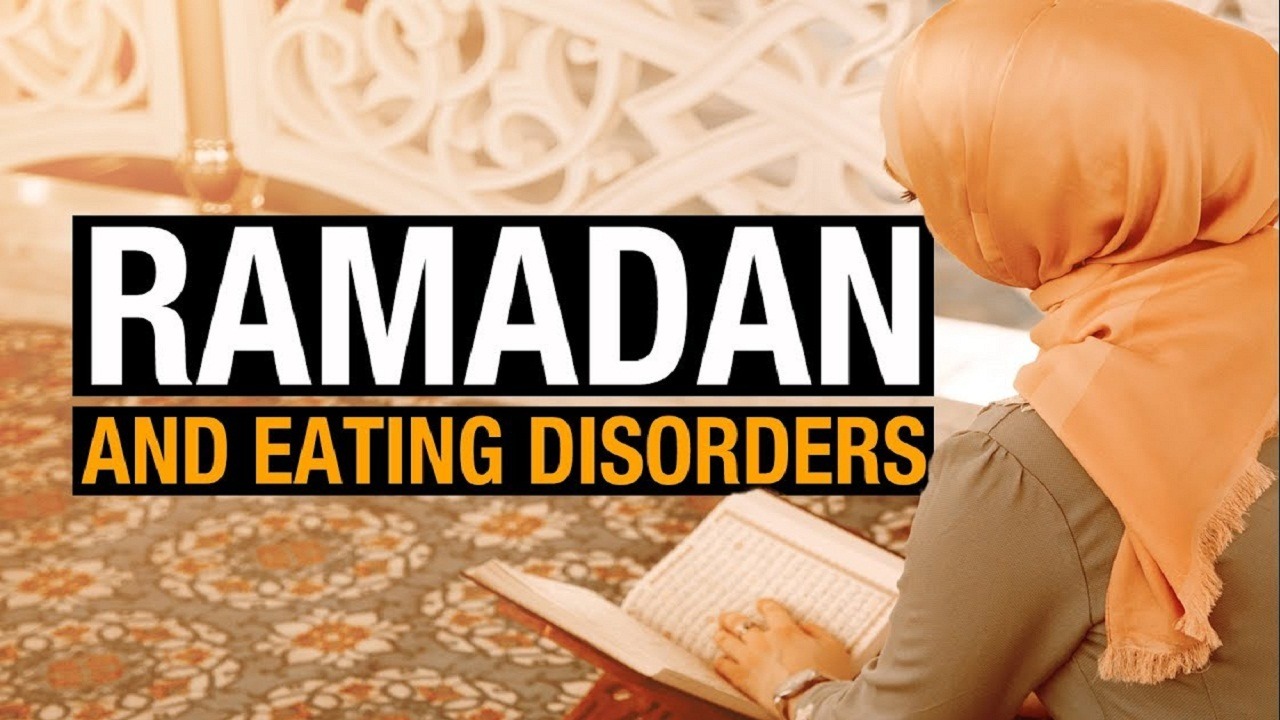Ramadan and Eating Disorders
Contents
- 1 Ramadan and Eating Disorders
- 2 Understanding Your Exemptions
- 3 Prioritizing Your Health: Alternative Practices
- 4 Open Communication: Talking to Your Imam and Loved Ones
- 5 Setting Boundaries: Managing Iftar and Suhoor
- 6 Mindfulness and Self-compassion: Tools for Emotional Wellbeing
- 7 Finding Strength in Faith
- 8 Embracing the Spirit of Ramadan: Moving Beyond Food Restriction
- 9 Creating a Supportive Ramadan Routine
- 10 Celebrating Iftar and Suhoor with Intention
- 11 Beyond Ramadan: Building Long-Term Support
- 12 References
Ramadan, a holy month of spiritual reflection, fasting, and community for Muslims worldwide, can be a complex time for those struggling with eating disorders. The focus on food restriction and celebratory meals can trigger anxieties and exacerbate existing disordered thoughts. However, it’s important to remember that your well-being is paramount, and there are ways to navigate Ramadan with compassion and self-care.
Related Post: “5 Reasons PhenQ Meal Shake is the Perfect Solution for Your Weight Loss Needs”
This guide explores how to approach Ramadan with an eating disorder, offering practical tips and Islamic insights to navigate this sacred month with a focus on spiritual growth, not self-punishment.
Understanding Your Exemptions
In Islam, there are exemptions from fasting for those with medical conditions. This includes eating disorders. The Quran itself states in Surah Al-Baqarah verse 184: ؕ وَاَنۡ تَصُوۡمُوۡا خَيۡرٌ لَّـکُمۡ اِنۡ كُنۡتُمۡ تَعۡلَمُوۡنَ اَيَّامًا مَّعۡدُوۡدٰتٍؕ فَمَنۡ كَانَ مِنۡكُمۡ مَّرِيۡضًا اَوۡ عَلٰى سَفَرٍ فَعِدَّةٌ مِّنۡ اَيَّامٍ اُخَرَؕ وَعَلَى الَّذِيۡنَ يُطِيۡقُوۡنَهٗ فِدۡيَةٌ طَعَامُ مِسۡكِيۡنٍؕ فَمَنۡ تَطَوَّعَ خَيۡرًا فَهُوَ خَيۡرٌ لَّهٗ“
Here’s a breakdown of exemptions and alternative practices:
- Those actively in treatment: If you’re undergoing treatment for an eating disorder, prioritize your recovery. Fasting can be detrimental, and your healthcare team and religious leader can help navigate exemptions.
- Those at risk of physical or mental harm: If fasting triggers binges, restricts intake to the point of weakness, or worsens mental health, prioritize your well-being.
- Pregnant or breastfeeding women: The demands of pregnancy and breastfeeding take precedence over fasting.
Prioritizing Your Health: Alternative Practices
There are beautiful ways to participate in Ramadan while prioritizing your health:
- Focus on prayer and Quran recitation: Deepen your connection with Allah through increased prayers, reflection on Quranic verses, and attending Taraweeh prayers (night prayers) if you’re able.
- Increased charity (Zakat and Fidyah): Giving to those in need is a core tenet of Ramadan. Consider donating food or money (Fidyah) to fulfill the missed fasts.
- Volunteer and help others: Helping those less fortunate embodies the spirit of Ramadan.
- Increase acts of kindness and compassion: Be a source of gentle support for others.
Open Communication: Talking to Your Imam and Loved Ones
Having open conversations can ease anxieties:
- Imam: Seek guidance from your Imam. They can provide religious context for exemptions and alternative practices.
- Therapist/Doctor: Discuss challenges with your healthcare team. They can personalize your Ramadan approach and offer support during a potentially triggering time.
- Loved Ones: Talk to supportive family and friends. Let them know about your limitations and what kind of support would be helpful.
Setting Boundaries: Managing Iftar and Suhoor
If you choose to attempt modified fasting, prioritize these tips:
- Set Boundaries: Communicate meal limitations to family and friends. Explain that large, rich Iftar meals might not be suitable for you.
- Suhoor: Don’t skip Suhoor (pre-dawn meal). Opt for protein-rich, complex carbohydrates, and healthy fats to sustain you throughout the day.
- Mindful Eating: Practice mindful eating during Suhoor and Iftar. Focus on savoring the food, chewing slowly, and listening to your body’s hunger cues.
- Hydration: Stay adequately hydrated throughout the day, especially during non-fasting hours.
Mindfulness and Self-compassion: Tools for Emotional Wellbeing
Ramadan is a time for reflection and inner growth. Here’s how to cultivate self-compassion:
- Challenge negative thoughts: Eating disorders often involve distorted self-beliefs. Challenge negative thoughts about food and your body.
- Gratitude practice: Focus on gratitude for blessings in your life, including good health and the opportunity to connect with your faith.
- Meditation and mindfulness: Meditation can help manage anxiety and negative thoughts. Consider incorporating short meditation sessions into your routine.
- Journaling: Writing down your feelings and anxieties during Ramadan can be cathartic.
Remember, you are not alone. Many Muslims struggle with eating disorders. Here are resources for support:
- National Eating Disorders Association (NEDA): [National Eating Disorders Association helpline ON National Eating Disorders Association nationaleatingdisorders.org]
- The Alliance for Eating Disorders Awareness: [alliance for eating disorders ON Alliance for Eating Disorders aware.org]
- Muslim mental health resources: These can be found through online searches or by asking your local mosque/community center for recommendations.
Finding Strength in Faith
Ramadan is a beautiful time of spiritual growth and community. It’s a chance to deepen your connection with Allah (SWT) through acts of worship, increased devotion, and reflection. However, for those struggling with eating disorders, the focus on food restriction and celebratory meals can be a source of immense anxiety and a potential trigger.
While fasting is a core pillar of Islam, it’s important to remember that true piety lies in self-compassion and prioritizing your well-being. This doesn’t diminish the importance of Ramadan. There are beautiful and fulfilling ways to participate that prioritize your health and spiritual growth. By focusing on prayer, increased charity, acts of kindness, and self-reflection, you can experience the true spirit of Ramadan while prioritizing your well-being.
Remember, Allah (SWT) is the Most Merciful and Most Compassionate. He understands your struggles and wants what’s best for you. Navigate this Ramadan with self-compassion, prioritize your health, and embrace the opportunity for spiritual growth that lies beyond food restriction.
Embracing the Spirit of Ramadan: Moving Beyond Food Restriction
While navigating Ramadan with an eating disorder can be challenging, it can also be an opportunity for spiritual growth that transcends food restriction. Here are some ways to embrace the spirit of Ramadan while focusing on inner reflection and strengthening your connection with Allah:
- Focus on the essence of fasting: Fasting in Ramadan goes beyond abstaining from food. It’s about self-discipline, empathy for those less fortunate, and cultivating gratitude for God’s blessings.
- Increased Dhikr (remembrance of Allah): Throughout the day, engage in Dhikr through repetitive prayers and phrases that remind you of Allah’s presence. This can be a calming and grounding practice.
- Tahajjud prayers: Consider incorporating Tahajjud prayers (night prayers) into your routine, even if it’s just for a short period. The quiet hours of the night can be particularly meaningful for reflection and connecting with the divine.
- Quran study and reflection: Dedicating time to studying and reflecting on the Quran can be a deeply enriching experience. Explore themes of compassion, forgiveness, and gratitude.
- Acts of kindness: Ramadan is a time for increased generosity and acts of kindness. Volunteer your time, give to charity, or simply offer a helping hand to those in need. These acts strengthen your connection to the community and reflect the spirit of Ramadan.
Creating a Supportive Ramadan Routine
Structure your Ramadan routine to prioritize self-care and spiritual growth. Here are some ideas:
- Develop a sleep schedule: Aim for adequate sleep to manage energy levels and overall well-being.
- Light exercise: Consider incorporating gentle exercise like walking or light yoga into your routine.
- Relaxation techniques: Practice relaxation techniques like deep breathing or meditation to manage stress and anxiety.
- Reduce social media: Limit time spent on social media, especially platforms that might trigger negative thoughts about food or body image.
- Create a Ramadan reflection journal: Use a journal to document your experiences, feelings, and spiritual reflections throughout the month.
Celebrating Iftar and Suhoor with Intention
Even if you’re not fully fasting, Iftar (evening meal) and Suhoor (pre-dawn meal) can still be meaningful experiences. Here’s how:
- Gather with loved ones (if possible): Spend time with supportive family and friends, even if it’s over a smaller, healthier meal. Focus on conversation and connection.
- Practice gratitude: Before starting your meal, express gratitude for the blessings of food and the opportunity to connect with loved ones.
- Mindful eating: Even if you’re not fasting for the full day, use Iftar and Suhoor as opportunities to practice mindful eating. Savor the flavors, chew slowly, and listen to your body’s hunger cues.
Remember, there’s no “one size fits all” approach to Ramadan. What works for someone else might not work for you. Be flexible, and compassionate with yourself, and prioritize your well-being.
Beyond Ramadan: Building Long-Term Support
While Ramadan presents unique challenges, consider these tips to build long-term support for your eating disorder recovery:
- Seek professional help: Consider ongoing therapy or counseling from an eating disorder specialist who can provide tailored support.
- Join a support group: Connecting with others who understand your struggles can be incredibly helpful. Look for online or in-person support groups specifically for Muslims with eating disorders.
- Practice self-compassion: Eating disorders are complex challenges. Be kind to yourself throughout your recovery journey.
- Celebrate small victories: Acknowledge and celebrate even your smallest achievements on your path to recovery.
Ramadan can be a time of immense spiritual growth and self-discovery. Prioritize your health, connect deeply with your faith, and remember that Allah is Most Merciful and Most Compassionate.
May this Ramadan be a journey of healing, self-compassion, and a deepening connection with your faith.
References
- Quran, Surah Al-Baqarah, Verse 184: You can find this verse online through various Islamic websites or Quran translations. Here’s an example: https://quran.com/2/184?translations=20,84,17,85,101,18,95,19,22
- National Eating Disorders Association (NEDA): National Eating Disorders Association helpline ON National Eating Disorders Association nationaleatingdisorders.org
- The Alliance for Eating Disorders Awareness: alliance for eating disorders ON Alliance for Eating Disorders aware.org
Additional Resources:
- Islamic Relief: This website offers resources on mental health and Ramadan, including guidance on exemptions from fasting: https://donate.islamic-relief.org/
- Yaqeen Institute for Islamic Research: This website has articles on various Islamic topics, including fasting and mental health: https://yaqeeninstitute.org/


